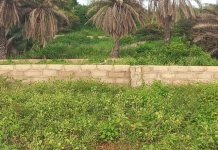9th June to 12th June 2014
INTRODUCTION
During the 1993 Vienna world Conference, the rights of the girl child and women were formally recognized as being an ‘inalienable, integral and indivisible part of universal human rights’. Following the convening, women’s rights actors and organizations across Africa begun to formally evaluate the extent to which the 1981 African Charter on Human and Peoples’ Rights (“The Charter”) adequately advanced the rights of the girls and women on the continent. Concluding it was insufficient, having a separate legal instrument to comprehensively address the rights of girls and women in Africa became a clarion call. Following the implementation of a multi-actor advocacy strategy, the African Union Heads of State and government eventually adopted the Protocol to the African Charter on Human and Peoples’ Rights on the Rights of Women in Africa (“The Protocol”), on 11th July 2003.
The protocol came into force 18 months later, making history as the
women were formally recognized as being an ‘inalienable, integral and indivisible part of universal human rights’. Following the convening, women’s rights actors and organizations across Africa begun to formally evaluate the extent to which the 1981 African Charter on Human and Peoples’ Rights (“The Charter”) adequately advanced the rights of the girls and women on the continent. Concluding it was insufficient, having a separate legal instrument to comprehensively address the rights of girls and women in Africa became a clarion call. Following the implementation of a multi-actor advocacy strategy, the African Union Heads of State and government eventually adopted the Protocol to the African Charter on Human and Peoples’ Rights on the Rights of Women in Africa (“The Protocol”), on 11th July 2003.
The protocol came into force 18 months later, making history as the  shortest time within which an instrument has done so in the African human rights system. It has been described by women’s rights law experts as one of the most progressive women’s human rights instruments in the world, with articles addressing inter alia development, peace, violence against women, sexual and reproductive health rights amongst others. Owing to the efforts of the Solidarity for African Women’s Rights Coalition (SOAWR) and its partners, the Protocol has garnered 48 signatures and 36 ratifications. Different states on the continent are at various stages of domestication and implementation.
While signature, ratification, domestication and implementation of the Protocol demonstrate commitment on the part of states as regards women’s rights, it is incumbent on them to consistently take practical actions that fully honour their obligations outlined in the Protocol if discrimination against women and girls on the continent is to be effectively addressed.
shortest time within which an instrument has done so in the African human rights system. It has been described by women’s rights law experts as one of the most progressive women’s human rights instruments in the world, with articles addressing inter alia development, peace, violence against women, sexual and reproductive health rights amongst others. Owing to the efforts of the Solidarity for African Women’s Rights Coalition (SOAWR) and its partners, the Protocol has garnered 48 signatures and 36 ratifications. Different states on the continent are at various stages of domestication and implementation.
While signature, ratification, domestication and implementation of the Protocol demonstrate commitment on the part of states as regards women’s rights, it is incumbent on them to consistently take practical actions that fully honour their obligations outlined in the Protocol if discrimination against women and girls on the continent is to be effectively addressed.
THE SITUATION: THE RIGHTS OF GIRLS’ AND WOMEN IN THE SUDAN
Sudan signed the Protocol 30th June 2008 signaling its commitment, in theory, to protect and advance the rights of its girls and women, 6 years later the state is yet to ratify the Protocol. In 2013, the Thomson Reuters Foundation conducted a survey where it highlighted rights violations against girls and women which had the effect of degrading women and affecting their human dignity in Sudan. The foundation noted that 12.1 million girls have been victims of female genital mutilation. A woman’s risk of maternal death in her lifetime is 1 in 31, with 730 maternal deaths per 100, 000 births. Furthermore, section 152 of the penal code is used to justify the arrest and flogging of women for the way they dress. It is reported that girls and women fear reporting rape, fearing that they will be tried and found guilty of committing adultery under section 149 of the penal code. The violations outlined above contravene the fundamental rights enshrined in the Protocol. If the government of Sudan not only ratifies the Protocol, but also domesticates and fully implements it, these actions are likely to have a significant impact in addressing the inequalities that girls and women face. SOAWR RATIFICATION MISSION: 9TH JUNE TO 12TH JUNE 2014 Since 2012, Sudans partner Mutawinat has implemented a series of activities to ensure that inter alia the government of Sudan ratifies the Protocol with the support of Equality Now and the SOAWR Coalition. Mutawinat took the lead and organized a series of events in Khartoum-Sudan. The same activities took place between 9th and 12th June 2014; 2 days workshop where women elected representatives, women’s rights activists and other organizations across the Sudan, and government officials and members of the SOAWR Coalition took part in the Protocol workshops where experts gave clarifications and information to the stakeholders. The other two days witnessed meeting with key government stakeholders with the following objectives: – To enhance understanding amongst stakeholders on the Protocol’s provisions and how the same can address discrimination against girls and women. – To identify the possible challenges to the ratification of the Protocol; – To formulate an action plan with clear bench marks leading up to ratification of the Protocol. The change of dates prevented many participants from attending. Nonetheless Amie Sillah of The Gambia represented FAMEDEV a Pan African NGO based in Dakar Senegal to which WODD is affiliated. Also in attendance were two officials, Kavinya and Ruth from Equality Now, an International NGO which has offices in Kenya, Nairobi as well as offices in London and New York. Samia El Hashimi, Mutawinat Chairperson of Woman together with her staff was very instrumental to ensure the Sudan Mission was a success.]]>


















